Call Us : 08045816053
Aerosol Silica
Price 230 INR/ Kilograms
MOQ : 25 Kilograms
Aerosol Silica Specification
- Application
- Industrial, food, medicine, Plastic, Paints, Lubricants
Aerosol Silica Trade Information
- Minimum Order Quantity
- 25 Kilograms
- Payment Terms
- Cash in Advance (CID)
- Supply Ability
- 100 Kilograms Per Day
- Delivery Time
- 7 Days
- Sample Available
- Yes
- Sample Policy
- Free samples are available
- Packaging Details
- Plastic Bags / Paper Bags
- Main Export Market(s)
- Australia, Eastern Europe, Western Europe, Africa, Central America, Middle East, South America, Asia, North America
- Main Domestic Market
- All India
- Certifications
- ISO 9001:2008
About Aerosol Silica
Aerosol Silica is an anticaking agent and a universal thickening agent (free-flow agent) in powders. We are a proud supplier of the same for our widely scattered clients. It serves as a desiccant and is used in cosmetics for its light-diffusing properties. Aerosol Silica is also used as a light abrasive, in products like toothpaste, as filler in silicone elastomer and viscosity adjustment in coatings, paints, printing inks, adhesives and unsaturated polyester resins. This chemical helps in production of cat litter box filler.
Applications of Aerosol Silica:
Aerosol silica, also known as silica nanoparticles or colloidal silica, is a type of nanomaterial that consists of tiny particles of silicon dioxide (SiO2). These particles have unique properties and find various applications across different industries. Here are some common applications of aerosol silica:
1. Coatings and Films: Aerosol silica is used in the formulation of coatings and films to improve their properties. It can enhance scratch resistance, increase hardness, and provide better adhesion to the substrate. Silica nanoparticles also act as a rheology modifier, improving the flow and leveling characteristics of the coating.
2. Adhesives and Sealants: Silica nanoparticles are added to adhesives and sealants to improve their mechanical properties and increase their bonding strength. They enhance the adhesion between the adhesive and the substrate, leading to improved durability and performance.
3. Reinforcement in Rubber and Plastics: Aerosol silica is commonly used as a reinforcing filler in rubber and plastic composites. It improves the mechanical properties, such as tensile strength, tear resistance, and abrasion resistance. Silica nanoparticles also help reduce the coefficient of thermal expansion and enhance dimensional stability.
4. Catalyst Supports: Silica nanoparticles serve as excellent catalyst supports due to their high surface area and porosity. They provide a large active surface for catalytic reactions, enhancing the efficiency and selectivity of the catalyst. Silica-supported catalysts are used in various chemical processes, such as petrochemical refining and organic synthesis.
5. Drug Delivery Systems: Aerosol silica particles can be functionalized and used as carriers for drug delivery. Their small size and high surface area enable efficient encapsulation and controlled release of drugs. Silica nanoparticles can protect the drug from degradation, improve its bioavailability, and target specific sites within the body.
6. Personal Care Products: Silica nanoparticles find applications in personal care products, such as sunscreens, cosmetics, and skincare formulations. They can act as UV filters, providing protection against harmful ultraviolet radiation. Silica particles also improve the texture, spreadability, and sensory properties of these products.
7. Environmental Remediation: Silica nanoparticles are used in environmental remediation processes to remove contaminants from air and water. They can adsorb heavy metals, organic pollutants, and harmful gases, helping to purify the environment. Silica-based adsorbents are used in water treatment, air filtration, and wastewater purification systems.
8. Energy Storage: Aerosol silica has shown promise in energy storage applications, particularly in lithium-ion batteries. Silica nanoparticles can be incorporated into battery electrodes to improve their capacity, cycling stability, and rate performance. They help mitigate issues like electrode swelling, improving the overall efficiency and lifespan of the battery.
FAQ:
Q: What is aerosol silica?
A: Aerosol silica refers to silica nanoparticles or colloidal silica particles that are suspended in a gaseous or aerosol form. These particles typically have a diameter in the nanometer range.
Q: How is aerosol silica produced?
A: Aerosol silica can be produced through various methods, including chemical synthesis, sol-gel processes, and precipitation techniques. These methods allow for the controlled synthesis of silica particles with desired properties such as size, morphology, and surface chemistry.
Q: What are the advantages of using aerosol silica?
A: Aerosol silica offers several advantages due to its nanoscale properties. These include a high surface area, improved dispersion, enhanced reactivity, and the ability to modify surface characteristics. These properties make it valuable for a wide range of applications, such as coatings, adhesives, catalysis, and drug delivery.
Q: Is aerosol silica safe to use?
A: The safety of aerosol silica depends on factors such as particle size, exposure duration, and concentration. While bulk silica is considered relatively safe, nanoparticles may exhibit different properties and potential health risks. It is essential to follow proper handling, use appropriate protective measures, and adhere to relevant safety guidelines and regulations when working with aerosol silica.
Q: What precautions should be taken when working with aerosol silica?
A: When working with aerosol silica, it is important to minimize exposure to the particles. This may include using proper personal protective equipment (PPE), such as gloves, masks, and goggles, to prevent inhalation or skin contact. Additionally, working in a well-ventilated area and following good laboratory practices can help minimize potential risks.
Q: Can aerosol silica be recycled or disposed of?
A: The recycling or disposal of aerosol silica should be performed in accordance with local regulations and guidelines for handling nanomaterials. Depending on the specific application and formulation, recycling options or proper waste management methods should be implemented to minimize environmental impact.
Q: Can aerosol silica be used in food or pharmaceutical applications?
A: Aerosol silica can be used in certain food and pharmaceutical applications. However, it is crucial to ensure that the specific grade of silica used complies with relevant regulations and meets the necessary safety and purity standards for these applications.
Q: Is there ongoing research on aerosol silica?
A: Yes, research on aerosol silica is ongoing. Scientists and engineers are continuously exploring new applications, improving synthesis techniques, investigating potential risks, and studying the environmental impact of these nanoparticles. This research aims to further expand the understanding and utilization of aerosol silica in various fields.
Enhancing Performance Across Industries
Aerosol silica is valued for its ability to improve product texture, stability, and bulk flow in sectors including plastics, paints, and food processing. In pharmaceuticals and lubricants, its benefits range from moisture resistance to enhanced formulation consistency. By choosing a reliable supplier in India, customers gain access to quality-controlled aerosol silica that meets diverse industrial requirements.
Reliable Supply and Expert Support
As an established distributor, exporter, importer, and supplier in India, we provide consistent access to a broad range of aerosol silica grades. Our experienced team assists clients with tailored solutions and ensures regulatory compliance. Quick logistics and responsive support underscore our commitment to seamless product delivery and client satisfaction.
FAQs of Aerosol Silica:
Q: How is aerosol silica commonly used in various industries?
A: Aerosol silica is used as an anti-caking agent in foods, a thickener in paints, a flow aid in plastics, and to enhance lubrication in mechanical products. It is also applied in pharmaceuticals for improved stability and flowability of powders.Q: What are the benefits of using aerosol silica in industrial applications?
A: Aerosol silica offers improved flow properties, moisture resistance, and enhanced product stability. Its high surface area ensures efficient absorption and dispersion, which is particularly beneficial in paints, plastics, food processing, and pharmaceuticals.Q: When should manufacturers consider incorporating aerosol silica into their products?
A: Manufacturers should consider aerosol silica when seeking to improve powder flow, reduce caking, enhance suspension stability, or ensure uniform texture in their formulations. It is ideal when product performance and shelf life are critical factors.Q: Where can aerosol silica be procured reliably in India?
A: Aerosol silica can be sourced from specialized suppliers and distributors, such as us, who offer quality-assured products for industrial, food, medical, and chemical applications across India. We provide both small and bulk quantities to suit various operational needs.Q: What is the process for importing and exporting aerosol silica in India?
A: Importing and exporting aerosol silica in India involves compliance with national safety and quality regulations, secure packaging, documentation, and logistics. Reputable suppliers manage regulatory requirements and facilitate efficient international shipment.Q: How does aerosol silica enhance the production process in lubricants and paints?
A: In lubricants, aerosol silica acts as a thickener, improving viscosity and preventing oil separation. In paints, it enhances suspension stability and provides a smooth finish, helping prevent pigment settling during storage and application.Q: What safety considerations must be taken when using aerosol silica?
A: While aerosol silica is generally recognized as safe and non-toxic, it is important to handle it using appropriate protective equipment to avoid inhalation of fine particles during processing. Adhering to safety guidelines minimizes risks in industrial and food environments.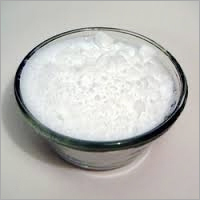
Tell us about your requirement

Price:
Quantity
Select Unit
- 50
- 100
- 200
- 250
- 500
- 1000+
Additional detail
Mobile number
Email
More Products in Fumed Silica Category
Micro Silica
Price 18 INR / Kilograms
Minimum Order Quantity : 25 Kilograms
Storage : Room Temperature
Grade : Industrial Grade
Purity : 99.31 %
Fumed Silica for Pharmaceutical
Price 530 INR / Kilograms
Minimum Order Quantity : 25 Kilograms
Storage : Room Temperature
Grade : Food Grade
Form : Powder
Fumed Silica
Price 530 INR / Kilograms
Minimum Order Quantity : 25 Kilograms
Storage : Room Temperature
Grade : Industrial Grade
Purity : 99 %
Form : Powder
Silica Fumed
Price 450 INR / Kilograms
Minimum Order Quantity : 25 Kilograms
Storage : Dry Place
Grade : Industrial Grade
Purity : 99 %
Form : Other, Granules

 Send Inquiry
Send Inquiry
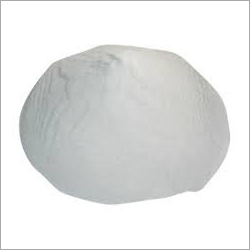

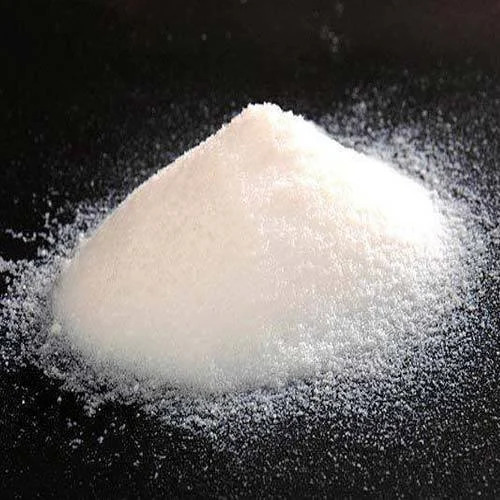
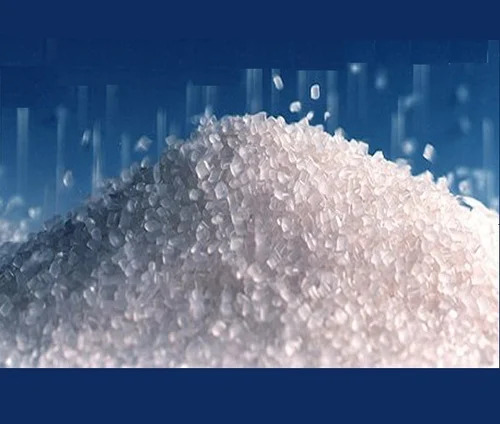
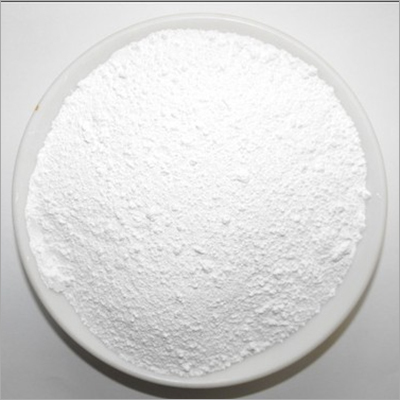

 English
English Spanish
Spanish French
French German
German Italian
Italian Chinese (Simplified)
Chinese (Simplified) Japanese
Japanese Korean
Korean Arabic
Arabic Portuguese
Portuguese